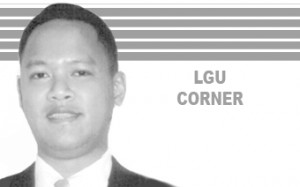 In the light of this money laundering investigation by the Senate, we have heard about a proceeding in the Senate that is called “Executive Sessionâ€
In the light of this money laundering investigation by the Senate, we have heard about a proceeding in the Senate that is called “Executive Sessionâ€
What is en executive session?
An executive session simply put, is a proceeding by the legislature or any of its committees, that is held behind closed doors, beyond the prying ears of the public and the media.
An executive session is the exception to the widespread policy of conducting legislative meetings and hearings always in public.
Strictly speaking an executive session directly relates to an action of the legislature involving the President himself as Chief executive.
That is why it is called “executive session â€, because it involves the Chief Executive.
But nowadays the phrase “Executive Session†nowadays has been loosely termed even by members of Congress themselves.
The constitutional basis of an executive session is found in Article VI Section 22 of the 1987 Constitution :
“When the security of the State or the public interest so requires and the President so states in writing, the appearance shall be conducted in executive session.â€
Thus, some senators mistakenly thought that the only ground for holding an executive session is when national security requires it.
Not quite because another ground is when the public interest demands its.
Notice that an executive session is supposed to happen only when “the President so states in writing…â€
Traditionally, when the President brings forth a matter to the Congress that is sensitive, like when it involved the nation’s security, the President can ask in writing that the proceedings be in executive session.
But in today’s setting, even an investigation about money laundering, where the President is not involved, it is still called “executive sessionâ€.
In any event, the Senate rules provide for the conduct of an executive session.
According to the Senate rules the executive sessions of the Senate shall be held always behind closed doors.
In such sessions, only the Secretary, the Sergeant-at-Arms, and/or such other persons as may be authorized by the Senate may be admitted to the session hall.
What are the reasons for which an executive session may be held?
First, whenever a Senator so requests it and his petition has been duly seconded.
Second, when the security of the State requires.
Third, when public interest so requires.
It is not true that only when the security of the state may an executive session be held.
As long as public interest requires, an executive session can be called.
Are there records of an Executive session?
Yes. But  the minutes of the executive sessions shall be recorded in a separate book.
The President as well as the Senators and the officials and employees of the Senate shall absolutely refrain from divulging any of the confidential matters taken up by the Senate.
Also, all proceedings which might have taken place in the Senate in connection with the said matters shall be likewise considered as strictly confidential.
But this can be divulged when the Senate, by two-thirds (2/3) vote of all its Members, decides to lift the ban of secrecy.
Notice, what is required to lift the veil of secrecy is a 2/3 vote of all its members.
According to the Senate Rules any Senator who violates the confidential rules may, by a two-thirds (2/3) vote of all the Senators, be expelled from the Senate.
If the violator is an official or employee of the Senate, he shall be dismissed.
There is no mention in case a private person is the one who violates the confidentiality. This means that private persons were never meant to be allowed in executive session, because there is no penalty in case they violate.
Whenever the Senate or of any of its committees request, the President of the Philippines or a Department Secretary sends to the Senate or to any of its committees certain confidential documents, the proceedings relative to said documents shall be held behind closed doors.
The documents shall not be published without the consent of a majority of the Senators present in the session.
Notice it is relatively easier to make public confidential matters brought by the President or his subalterns.
It only requires “majority of the Senators present†to make such confidential matters public.
But to divulge any other confidential matter, what is required is 2/3 vote of all the members of the Senate, and it does not say whether or not such Senators were present in the hearing. (By Atty. Jay I. Dejaresco)
